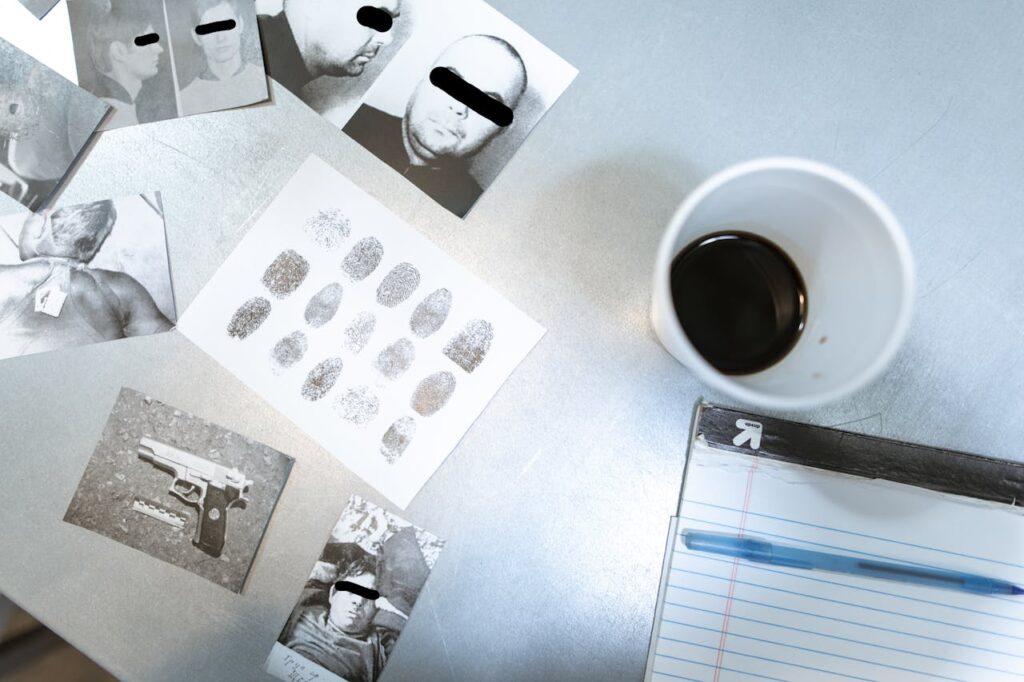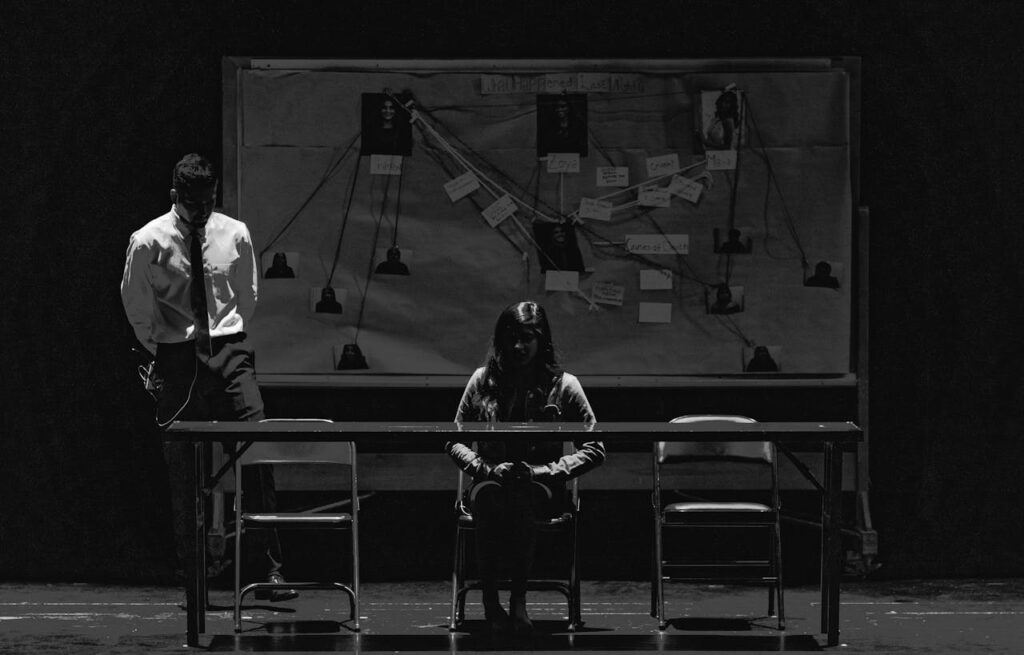Key takeaways
- Corrections degree and related jobs are highly specialized subfields of criminal justice and law.
- There are not many universities and colleges that offer standalone or particular undergraduate programs for corrections.
- However, corrections is a popularly offered specialization within the criminal justice and law field.
- Professionals with corrections education work in facilities like prison, rehabs, and juvenile detention centers.
- Some of the core skills needed in this industry are interpersonal skills, communication, compliance, and critical thinking.
- College admission requirements for corrections degrees include standardized test scores (SAT/ACT), personal statements, and letters of recommendation.
- Degree completion typically requires around 120 credit hours and may involve internships and certifications.
- The program coursework for corrections degrees often overlap with that of criminology and criminal justice subjects.
- The typical career paths for corrections degree graduates are parole officers, probation officers, and correctional officers.
- However, there are several other types of jobs available in fields like education and law enforcement.
- Case manager, social advocate, community manager, and compliance-related roles are available for corrections degree jobs.
- The best career prospects for corrections degree holders are found in state government, national government, and educational institutions.
The corrections field is packed with highly qualified individuals who work in correctional facilities such as rehab and prisons. It is an extremely skilled and specialized industry with a focus on developing and improving our society for its betterment. In addition to this, corrections is a sub-branch of the criminal justice field, and is closely related to other parts of criminal justice such as law, legal enforcement, and legal proceedings.
Therefore, having a knowledge of these issues and processes is also important. Additionally, interpersonal skills, communication, data management, and ethical considerations are other important skills one must possess to pursue a correctional career. However, the best way to develop these skills and competencies is through a bachelor’s degree in corrections.
So, if you think a corrections degree is right for you, or need any guidance on selecting the right program, this following comprehensive guide will help you decide. Let’s dig in to explore the nitty-gritty details of a corrections degree, its career prospects, coursework, and job outlook.
What is the role of corrections?
Before you explore the academic side of corrections, make sure to look into what role corrections play in any situation. To be particular, corrections have numerous roles and responsibilities, which include but are not limited to the following:
- Ensuring those who break the law face consequences
- Ensuring those deviant from law get the right counseling
- Help law breakers through correctional programs and education such as rehab
- Ensure secure confinement in jails and prisons
- Ensure compliance to legal requirements for people on parole, bail, or probation
- Work with young offenders
- Assist and advocate for legal rights and issues
- Work on social welfare cases
- Manage a correctional facility
These are only some of the roles that corrections professionals play. As you can see, they have an important part in the overall development of society as well as important institutions such as prisons and jails. In addition to this, corrections are tightly knitted with “compliance”. So, there is a lot of focus on legal requirements and necessities that are closely monitored by these professionals.
Overall, the basic idea of corrections is to ensure public safety, management, and administration, and enforce justice. This is why it is a sub branch of criminal justice.
What is a corrections degree?

Since you already know what the corrections field is, what role it plays, and what its key focus areas are, expect the same from a corrections degree. It is typically an academic program of about 4 years offered by different colleges across the US. A corrections degree is also often offered as a specialization within the criminal justice program. This is, like we mentioned, because the field is a sub branch of justice.
You can check out this complete guide on criminology and related degrees!
However, some specialized colleges and universities do offer a standalone corrections degree. In any case, you can choose either of these and still ensure spot-on learning outcomes and relevant career opportunities.
Other than this, there are also many other things you must know about a corrections degree or related programs. Firstly, there are college admission requirements such as application procedures. Secondly, there are degree requirements such as how many credit hours you must complete to graduate. Other than this, the program specializations and coursework is also an important aspect that you must not overlook. So, to get you started on this journey of college planning, here is everything you need to know.
Degree requirements
A college major like corrections has some prerequisites or requirements. These must be fulfilled but can vary from college to college. However, there are some typical requirements for degree enrollment and completion. We have listed these below.
Degree enrollment or admission:
- A completed high school diploma or GED
- Submission of standardized test scores (SAT, ACT, or equivalent)
- Proof of English proficiency for international applicants
- Filled application form along with the required fee
- Well-crafted personal statements and essays
- Strong letters of recommendation from educators or professionals
Degree completion or graduation requirement:
- Internship experience and relevant certifications
- Earning around 120 credit hours or as required
- Clearance of all financial dues
- Clearance of all exams and coursework at required minimum CGPA
However, we strongly recommend inquiring about your particular college’s requirements so that you have everything planned accordingly.
Coursework and program details
We have already established that most colleges offer corrections as a specialization within criminology or criminal justice degrees. This means that the coursework will be mostly linked closely to justice and law subjects.
Furthermore, corrections are, to a certain extent, interdisciplinary. This means that there will be coursework related to things like gender and crime, social sciences, and even history or anthropology. This makes the entire program interesting and full of variety.
The coursework is typically decided on the basis of the teaching method and style. Different colleges have different learning objectives and methods. So, a lot of subjects and topics are taught using methods like:
- Class lectures
- Recorded lectures
- Written assignments
- Presentations
- Group or individual projects
- Research papers
- Analytical papers
- Dialogue
- Reflection papers
- Capstone or thesis projects
So, exploring what kind of coursework any college truly transforms or influences your college experience. You must make sure that the courses included along with your career goals, and the teaching methods are suitable for your learning capabilities and preferences.
So, here is a look at some of the most common subjects and courses taught in corrections degrees:
|
|
Specializations in corrections bachelor degree
Like every college degree, corrections also have some specializations or sub branches that you can focus on. Selecting the right specialization can significantly help you in streamlining your career prospects and focus on what you are interested in the most. So, here is a list of commonly offered corrections specializations:
| Specialization | Description |
|
Focuses on the study of crime, criminal behavior, and the social factors influencing crime. |
|
Includes topics such as prison reform, sentencing laws, and rehabilitation programs. |
|
Specializes in working with youth offenders, understanding juvenile delinquency, and developing interventions tailored to minors in the criminal justice system. |
|
Focuses on rehabilitation and treatment programs for offenders, including counseling, substance abuse treatment, and behavioral therapy. |
|
Advocates work with victims of domestic violence, human trafficking, and other crimes. |
What are the career prospects of a corrections degree?
The three most popular jobs for corrections degree holders are:
- Corrections officer: overseeing individuals who are on bail or in the process of other legal proceedings.
- Probation officer: supervising individuals who are out of jail but are under conditional agreement.
- Parole officer: ensuring and overseeing compliance of parole conditions for people who have been released from prison.
However, these are just the tip of the iceberg. Do not get confused or demotivated thinking that there are only 3 possible outcomes of a corrections degree. In fact, there are many awesome prospects that you would be interested in.
So, finding out the career prospects can truly help you make a decision. We discuss some important stats from BLS below, followed by an overview of the common jobs and careers for corrections degree graduates.
- Entry-level jobs for correctional officers require only bachelor’s degree or equivalent
- The average pay for entry-level jobs in 2023 was $53,290 per year
- On-the-job training is a crucial part of most related jobs
- State government, national government, and educational institutes have the highest employment
- Texas and California are the states with the highest employment
- California has the highest pay rate
Where do corrections officers work?
So, after getting a correction degree, you may find employment in different industries and places. However, many reports suggest that national and local government agencies have the highest employment rate for corrections graduates.
Corrections officers work in various environments where they oversee, manage, and supervise individuals who are incarcerated or under legal supervision. So, their workplaces vary based on the type of correctional facility and the level of security required.
So, here is a list of common places and employers for correction officers:
- State and federal prisons
- County and city jails
- Juvenile detention centers
- Transitional facilities or inmates
- Rehabilitation facilities
- Detention centers for homeland security
- Holding areas for courthouses
- Psychiatric and physical health facilities
It is important to know where the best career prospect is, so you can streamline your search for the ideal job accordingly. Moreover, all the above-mentioned employers seek qualified individuals with at least bachelor degrees or equivalent from reputable colleges. Therefore, choose your college accordingly.
Most common jobs for corrections degree holders
Here are some of the most common jobs that you may become eligible for with a degree in corrections.
|
|
How much can you make with a corrections degree?
Since you are going to spend a lot of time and money on your degree, assessing the salary outlook is very important as well. However, there are not many exact or accurate salary figures that you can find online. Many reports are usually outdated or are related to one single type of job. In addition to this, the pay rate or salary range depends on factors like:
- Experience level
- Type of employment
- Type of employer
- State and location
- College reputation and image
Yet, there are some stats by BLS that you may be interested in. These are not the latest but give a good reflection of the industry.
- Median salary for correctional officers was $54,000 in 2023.
- Top 10 jobs in Alabama for corrections professionals offered an average pay of $63,170
- San Jose-Sunnyvale-Santa Clara, CA have the highest salary range
List of colleges with corrections programs

Moving on, we come to the most important section of the article. As you can see, we have repeatedly mentioned the importance of a good college for a good career in corrections. Firstly, good colleges offer high standards of education that prepare you for the real-world application. Secondly, good colleges with a reputation make you look better in front of potential employers.
Furthermore, a college degree is a 4-year long journey, sometimes longer than that. Therefore, it is vital that the campus and students you study with are vetted before you commit to anything. To help you get started with selecting the best college, here is a list of important considerations you should keep in mind for choosing the best college for a corrections degree.
- Accreditations and education standards by agencies like Higher Learning Commission (HLC), Southern Association of Colleges and Schools (SACS), or Accrediting Commission for Community and Junior Colleges (ACCJC).
- Explore program curriculum, coursework, teaching methodology, and learning objectives to make sure it aligns with your career goals.
- Explore whether there are options like hands-on training, and flexibility such as online learning, internships, or study-abroad opportunities.
- Take a good look at the campus and campus facilities. Look into the resources available, such as career fairs, mentorship programs, student organizations, and networking events that enhance academic and professional growth.
- Some colleges offer professional development programs that help students and better job opportunities and internships.
- Consider the campus location in relation to job opportunities, security, and personal preferences.
- Look into on-campus housing options such as dorms and apartments. Also explore the costs associated.
- Evaluate the total cost of attendance, including tuition, fees, housing, books, and other expenses. Research financial aid options such as scholarships, grants, work-study programs, and student loans
Now, let’s dig into the list of handpicked colleges for corrections.
Arizona State University
Arizona State University’s School of Criminology and Criminal Justice is one of the best institutes for students who wish to study in the relevant field. Moreover, the college is known for a wide variety of criminal justice and related programs. However, it does not offer a standalone corrections degree. Luckily enough, it does offer a criminal justice and law program with a specialization in corrections. Therefore, you can choose this program to enjoy an acceptance rate of over 88%, excellent faculty, reliable campus facilities, and much more. The college is located in Tempe, AZ.
Purdue Global University
More than 90% of the graduates from Purdue Global University have been able to find work in correctional facilities and other places after 18 months of graduation. This is more than enough to tell you that PGU is an excellent choice for pursuing a criminal justice degree with great flexibility. In addition to this, this is a completely online bachelor’s degree in criminal justice, with a focus on corrections. Moreover, the college has an easy admission policy and accepts all types of high school grades. Furthermore, its program coursework is focused on training students for modern and latest real-world applications.
University of Missouri–St. Louis (UMSL)
At the University of Missouri–St. Louis (UMSL), you can opt for the criminal justice and law programs with a concentration in corrections. Firstly, this degree will open gates for a career in this field, working in correctional facilities and jobs like prison guards and case workers. The most important aspect of this program is its interdisciplinary nature that encompasses concepts from criminology, law, and paralegal programs. As a result, you get to develop core skills along with knowledge for all related processes and fields. The college has an acceptance rate of 51%, and is located in St. Louis, MO.
Temple University
Located in Philadelphia, Pennsylvania, the Temple University has a generous acceptance rate of over 83%. Firstly, it offers a comprehensive program that allows students to make the most out of their degree for real-world professional opportunities. Moreover, there is not a standalone correction program, but you can choose the BA in criminal justice major for a similar learning outcome. The program requires the completion of 123 credits, with a focus on developing core skills such as problem-solving, critical thinking, and legal information.
Start your corrections bachelor’s degree today

In summary, we can agree to say that corrections is a good career choice for passionate people. It is a high-impact and change-driving profession that focuses on the improvement and development of the society. Unfortunately, not many colleges offer corrections programs. However, there are several amazing colleges with criminal justice and law degrees and a focus on corrections. Some of these colleges include Arizona State University, Temple University, and University of Missouri. In addition to this, you can get an online bachelor’s degree in corrections from Purdue Global University.
However, choosing the best college for undergraduate majors is a tedious process and requires a lot of attention. Firstly, you need to consider factors like the accreditation and quality standards for the college. Then, there are other factors like campus life, financial ad, cost of attendance, and faculty quality.
Furthermore, choosing a college major also requires a lot of information about the career prospects. Therefore looking into the salary outlooks as well as the typical employers and employment places is also important. This way, you will be able to align your college degree with your career goals and preferences.
Lastly, a college degree and its planning requires some expert advice and guidance. This is because, with the right insightful resources, you can make better decisions. So, we recommend you get in touch with All Bachelor Degrees experts to make an informed decision.
